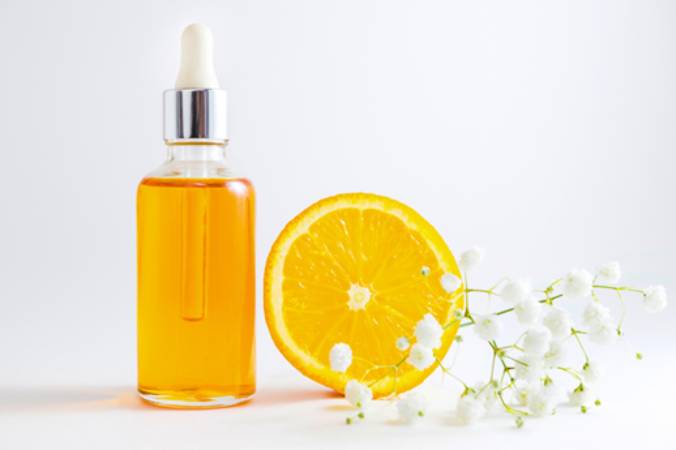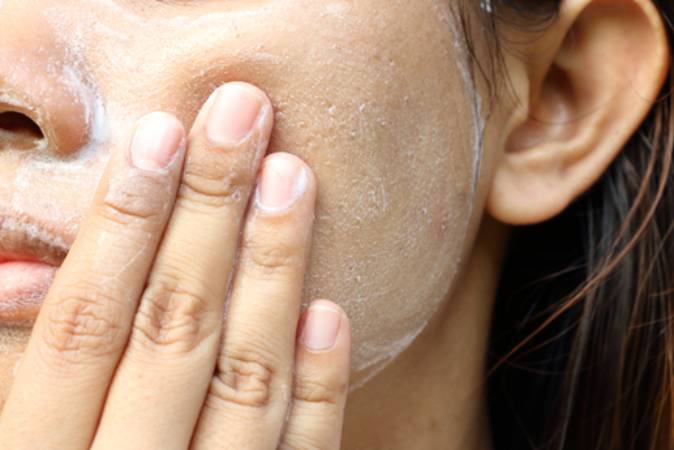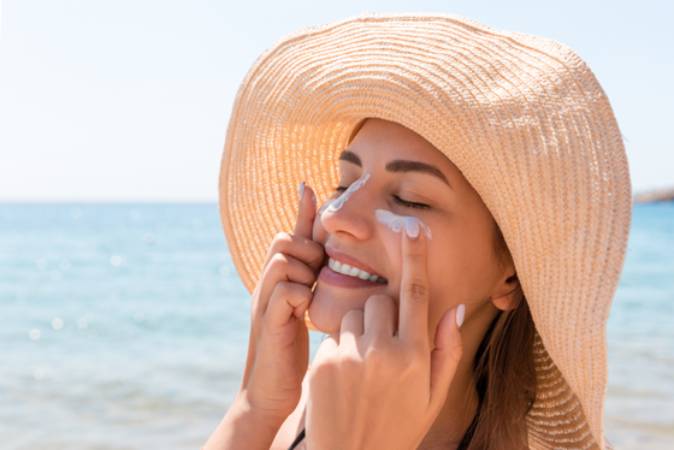Anti-Aging Skincare 101: Everything You Need to Know: It’s never too late or too early to start an anti-aging skincare routine. In fact, the sooner that you start to protect your skin against the signs of aging, the more effective the treatments will be. If you’re not sure how to get started with anti-aging skincare, here are nine tips that you need to know about slowing the signs of aging:
Protect your skin from the sun.
Sun damage is one of the single biggest contributing factors to visible aging, causing wrinkles, fine lines, sun spots, and more. That’s why you should wear anti-aging sunscreen every day that offers broad-spectrum protection and has an SPF of at least 30. You should also cover up your exposed skin as much as possible and try to stay out of direct sunlight — which means no laying out on a pool chair for hours trying to get a tan! Instead, stick to the shade and reapply sunscreen every two hours to stay protected.
Skip indoor tanning.
Speaking of tanning, those indoor tanning beds aren’t any better for your skin than tanning “naturally” from the sun outside. The lamps used in tanning beds also emit UV radiation, just like the sun in order to change the color of your skin. If you must get a golden glow, opt for a sunless self-tanner instead. These products come in many different formulations, including mousse, gel, and lotion, so you can choose the one you like best. You can use them at home or go to a spray tanning salon for a professional application.
Stop smoking.
Smoking deprives the skin of oxygen and nutrients by narrowing the blood vessels over time and is another major contributing factor to aging besides sun damage. If you currently smoke, we highly recommend trying to quit — not just for your skin, but for the host of other health benefits that it brings as well. If you don’t smoke yourself but are exposed to a lot of smoke secondhand, we also recommend taking steps to limit your exposure whenever possible to protect your skin and your health.

Use vitamin C in the morning.
While a vitamin C serum is no replacement for wearing sunscreen, it can give your anti-aging skincare routine a boost. That’s because vitamin C (also called ascorbic acid) is an antioxidant that helps to fight free radical damage that contributes to signs of aging. For best results, we recommend using vitamin C in the morning before your anti-aging moisturizer and sunscreen so it will protect your skin from free radicals during the day. Look for serums that use ascorbic acid, the most powerful form of vitamin C, instead of a weaker derivative.
Start using retinol.
Retinols and retinoids are another one of the foundational ingredients of an anti-aging skincare routine. Retinols increase skin cell turnover and collagen production, unclog pores, and give your skin a fresh, plump appearance. Retinoids are the strongest, most potent form. Most are available by prescription only, although Differin is now available over the counter. There are also many gentler retinols that are available over the counter and still provide benefits without the potential side effects that a stronger retinoid can have.
Moisturize and hydrate your skin.
Dry, dull skin will exacerbate the appearance of fine lines and wrinkles no matter what your age is, which is why proper moisturization and hydration is essential. Choose a moisturizer that works for your skin and the season, whether that’s a lightweight gel lotion for the summer or a heavy night cream for the winter. Also, consider incorporating additional products into your routine, such as hydrating serums and facial oils, to help your skin look even more plump and glowy. If you’re looking for a product you can trust, consider Calecim’s restorative hydration cream to treat the signs of premature aging.

Establish an exfoliation routine.
Speaking of dry, dull skin that makes you look older, there’s a way to get rid of that: regular exfoliation! Most people need to exfoliate anywhere between one and three times a week in order to remove dead skin cells that clog pores and make the skin look dull. For best results, we recommend using an exfoliator after your facial cleanser so it can dissolve the dead skin cells right away. Do this on nights when you aren’t using your retinol (which also has a mild exfoliating effect), and follow up the exfoliator with a thick moisturizer to keep your skin from drying out.
Stay hydrated and eat healthy.
What you eat and drink has a major impact on your skin’s health and appearance. No matter how many anti-aging moisturizers you apply, your skin will still look tight and saggy if you aren’t drinking enough water to plump it up from the inside out! For your diet, prioritize healthy foods like lean proteins, fruits, vegetables, whole grains, and dairy. Watch your sugar and sodium intake and try to limit the processed foods that you eat as well.
Improve your sleep habits.
Your body repairs itself and regenerates cells when you sleep, and this applies to your skin as well as the rest of you. If you don’t get enough sleep, you will begin to see the effects on your skin almost immediately, and vice versa. Most adults need at least seven to nine hours a night, so make sure that you’re building that time into your schedule. To fall asleep faster, avoid caffeine after noon and put away screens at least an hour before bed. You should also go to bed and wake up at the same time (even on weekends) to help your body stay on a sleep schedule.
What are your other expert tips for protecting your skin from signs of aging? Do you have any products that have made a difference in your skin? Let us know in the comments below!

